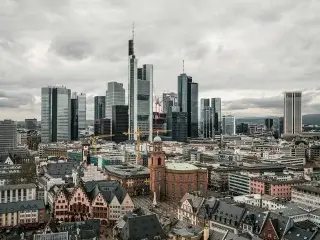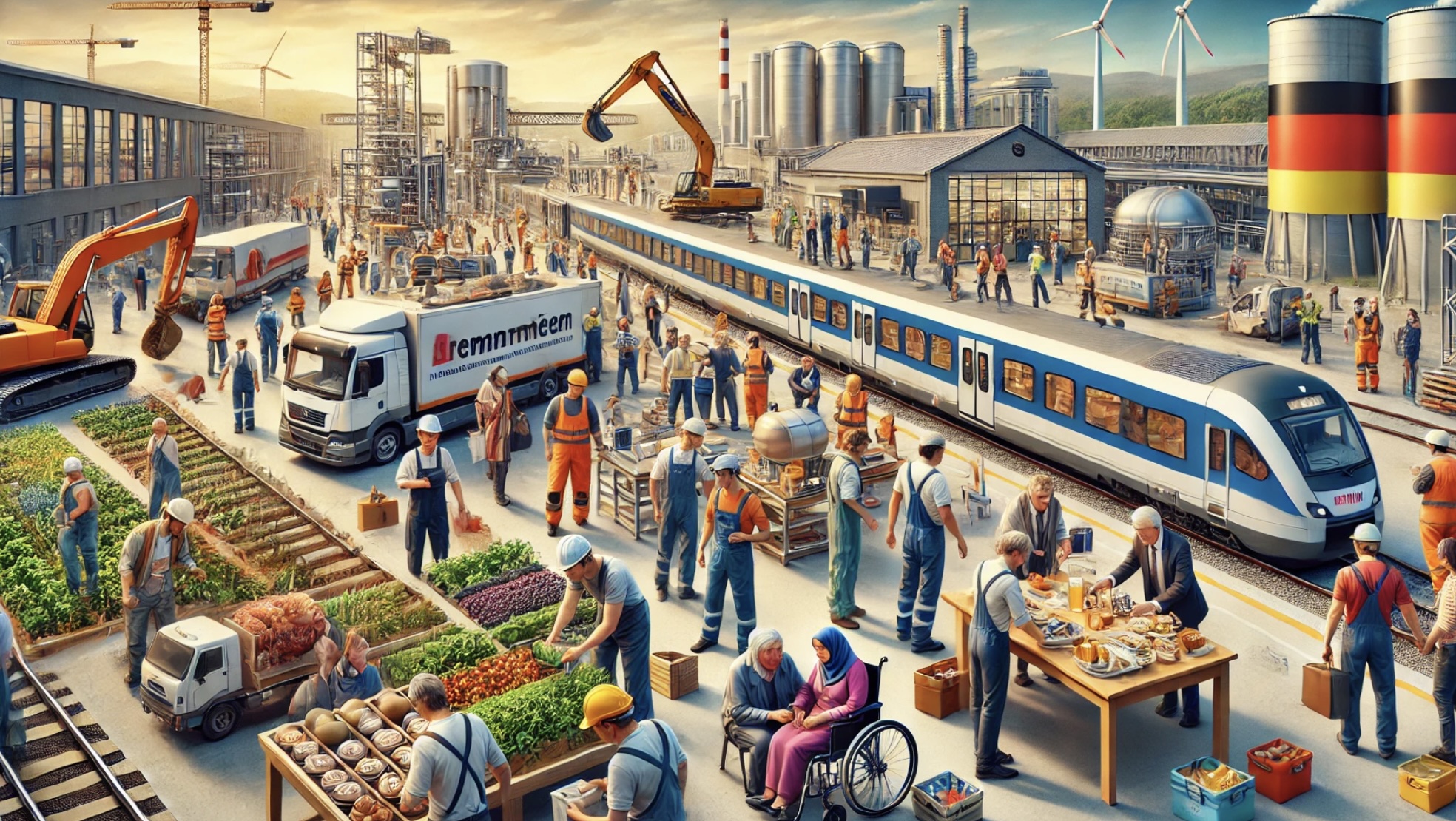read also
 Eurozone Economies Face a Cautious 2026
Eurozone Economies Face a Cautious 2026
 Airports in the Krasnodar Region Face 155 Flight Delays
Airports in the Krasnodar Region Face 155 Flight Delays
 Attack on Dubai, February 28, 2026: Timeline of Events and Impact on the Real Estate Market (Updating)
Attack on Dubai, February 28, 2026: Timeline of Events and Impact on the Real Estate Market (Updating)
 Russians Flee the UAE Amid Shelling
Russians Flee the UAE Amid Shelling
 Chaos at London and Manchester Airports: 293 Delays and 66 Flight Cancellations
Chaos at London and Manchester Airports: 293 Delays and 66 Flight Cancellations
 Flight Delays and Cancellations in Italy: More Than 200 Disruptions
Flight Delays and Cancellations in Italy: More Than 200 Disruptions
Germany's Key Sectors Rely on Migrant Workers as Labor Shortages Continue

Foreign-born workers and those with an immigration background dominate Germany’s most critical labor-short sectors.
Construction, food production, transport, and elder care are among the industries where over 50% of employees have immigrant roots.
Meanwhile, in finance, insurance, law enforcement, and public administration, their numbers remain low.
Germany’s labor market is increasingly reliant on workers with an immigration background as many key sectors struggle with workforce shortages. According to Destatis, the Federal Statistical Office, more than 26% of all employees in sectors experiencing a labor shortfall in 2023 were either immigrants themselves or the children of immigrants who moved to Germany after 1950.
As Schengen News reports, migrant workers make up:
67% of the workforce in construction
51% in food production
46% among bus and tram drivers
Foreign-Born Workers Fill the Gaps in Essential Sectors
The data also highlights that other industries are significantly supported by migrant labor:
Meat processing – 42%
Retail food sales – 41%
Freight transport – 37%
Elderly care – 31%
Metal construction – 30%
Additionally, 40% of employees in hospitality and delivery services (couriers and postal workers) have an immigration background. The same applies to 31% of workers in the auto manufacturing industry and 30% in elderly care facilities.
Where Are Migrants Least Represented?
While foreign-born workers dominate many essential industries, there are sectors where their presence remains minimal. According to Destatis, the lowest numbers were recorded in:
Insurance sales – 13%
Public administration – 9%
Law enforcement – 6%
Education – 10%
Energy supply – 14%
However, the hospitality and cleaning industries remain highly dependent on migrant workers, with over 50% of employees in hotels, restaurants, and landscaping coming from immigrant backgrounds.
As Germany continues to face severe labor shortages, experts stress the importance of attracting more foreign workers to sustain economic growth and ensure the stability of key industries.


